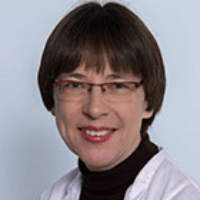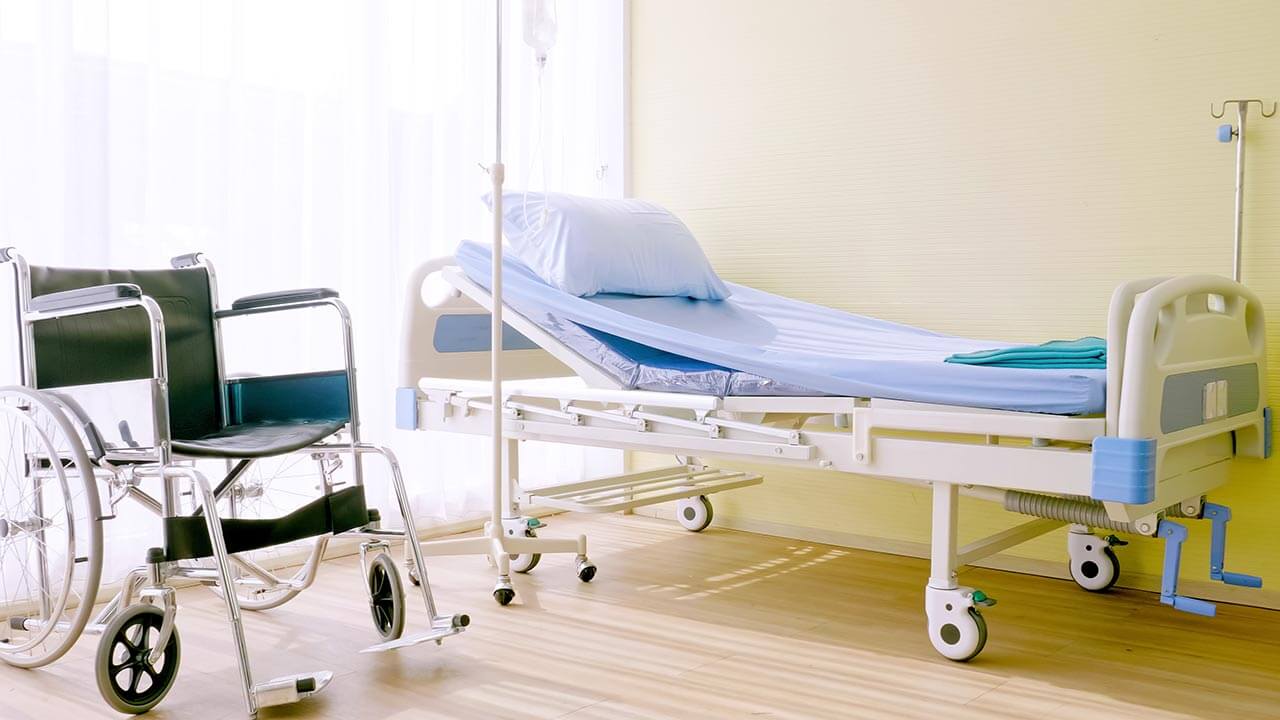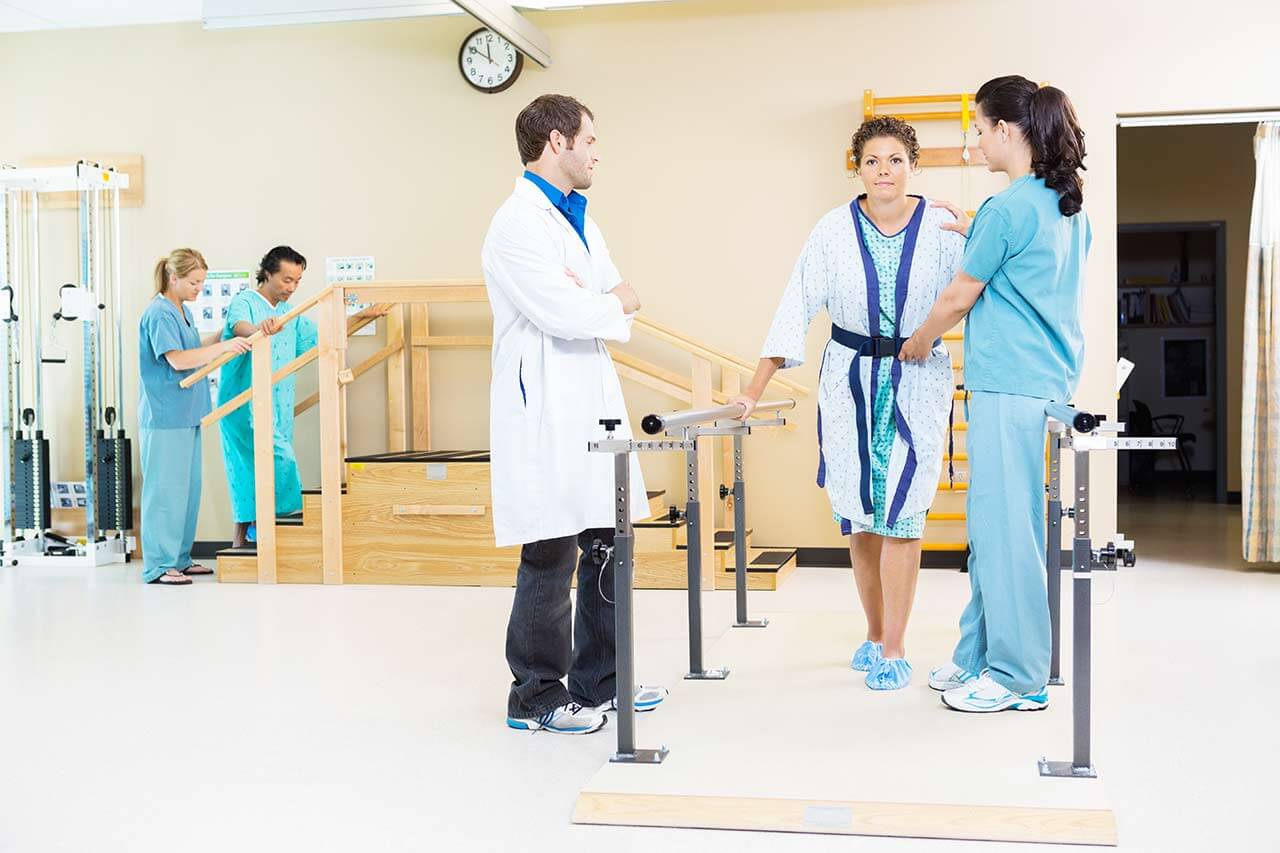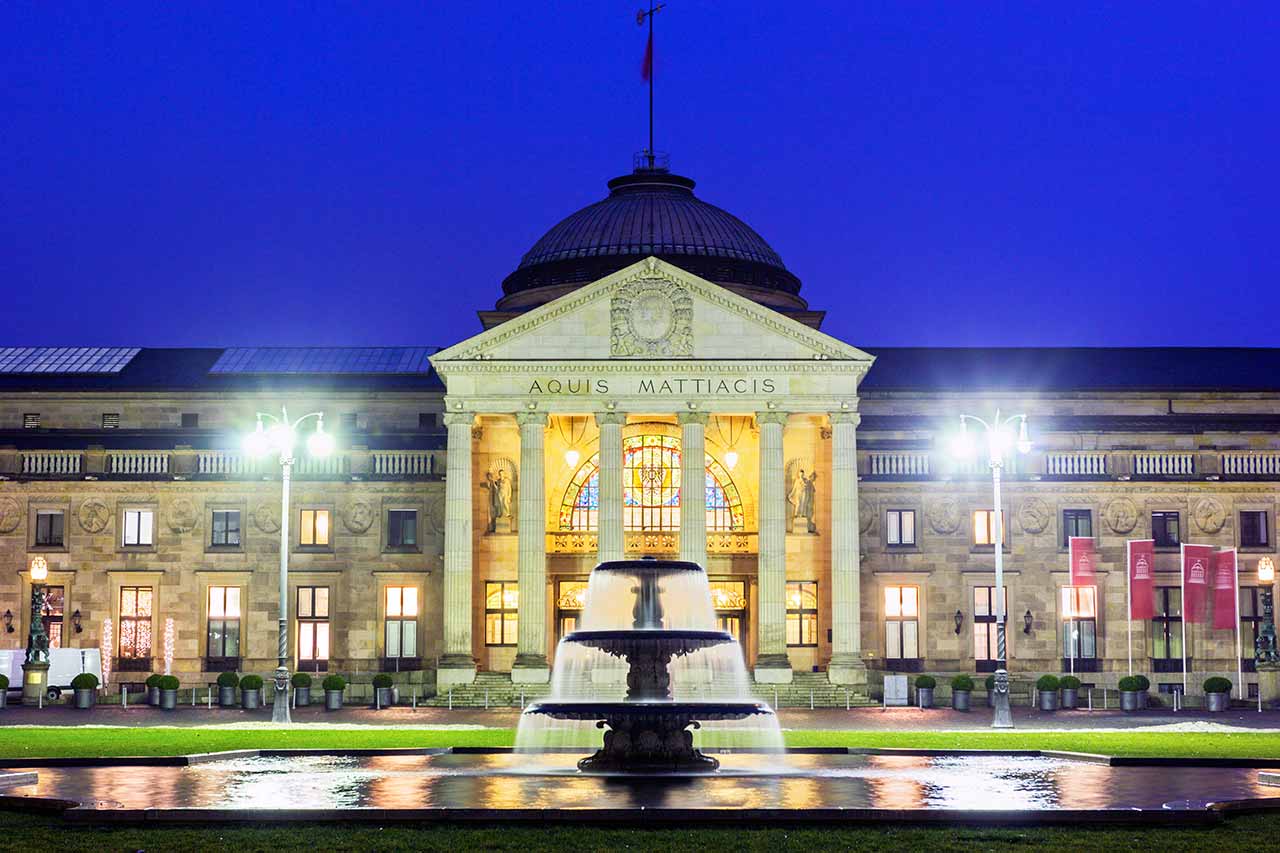
About the Department of Neurological Rehabilitation at MEDIAN Neurological Rehabilitation Clinic Wiesbaden
The Department of Neurological Rehabilitation at the MEDIAN Neurological Rehabilitation Clinic Wiesbaden provides the full range of rehabilitation procedures to restore lost skills and functions of the nervous system caused by a neurological disorder or a neurosurgical intervention. The department's medical team specializes in the rehabilitation of phases B, C and D. Each patient is provided with a comprehensive rehabilitation program elaborated by an interdisciplinary team of the department’s doctors on the basis of the extensive range of diagnostic examinations, patient's neurological status, his individual needs and rehabilitation potential. Prior to appointing specific therapeutic methods, the rehabilitation therapists clearly define particular goals, the main of which is maximum independence in social and professional life. Depending on the severity of the clinical case, neurological rehabilitation can take place both on an inpatient and outpatient basis. The department's rehabilitation therapists personally supervise patients on their way to recovery and support them in every possible way. The specialists also encourage the involvement of the patient's family in the therapeutic process, which motivates for the achievement of the best results. The department is headed by Dr. med. Monika Cichorowski.
To provide patients with comprehensive rehabilitation, the department offers the services of specialists from various fields of rehabilitation medicine, including physiotherapists, sports therapists, occupational therapists, neuropsychologists, speech therapists, massage therapists, nutritionists and other physicians. The specially trained nursing staff who are always ready to help take care of the patients. All medical specialists have vast clinical experience and exceptional qualifications, which help them regularly achieve high-quality rehabilitation results.
The department has an excellent modern medical and technical base, which meets the most stringent requirements for centrs specializing in neurological rehabilitation. The diagnostic rooms are equipped with advanced devices for the comprehensive assessment of the patient's nervous system. The patients can undergo such examinations as electroencephalography, recording of somatosensory, auditory and visual evoked potentials, nerve conduction velocity test, electromyography, CT and MRI scans (in collaboration with the Helios Dr. Horst Schmidt Clinic Wiesbaden) and others. The rehabilitation procedures take place in spacious and comfortable treatment rooms. The medical facility offers innovative Wii Fit, ArmeoSpring and Easy walk systems for fine and gross motor skills training, balance training, walking training, etc. For example, the ArmeoSpring system is a state-of-the-art device for functional therapy of the upper limbs in patients after stroke, traumatic brain injuries and other neurological disorders, which cause hand and arm dysfunction. An ergonomic оrthotic exoskeleton with an integrated weight support system compensates for the weight of the upper limb, thereby allowing the patient even with small residual functional capabilities to perform training tasks (flexion, extension in the shoulder and elbow joints, grasping movements of the hand, etc.) in 3D simulation of real life situations. The software includes a large patient database. The doctors select individual parameters for each patient and customize a range of motion and a therapy plan. The advanced feedback includes motivational exercises to practice skills used in daily life. The progressive Wii Fit system is used for balance training. The training allows the patient to have fun and exercise at the same time. The use of this training device is especially effective in the rehabilitation of stroke patients.
The department's rehabilitation therapists most often admit patients after stroke – an acute cerebrovascular accident. Early stroke rehabilitation is very important, since it allows the patient to recover as much of the lost skills as possible and to gain maximum independence in everyday life. Stroke patients can undergo rehabilitation both on an inpatient and outpatient basis. In addition to highly effective rehabilitation measures, the department's specialists offer patients the detection and elimination of possible risk factors in order to prevent the development of secondary stroke. The patient undergoes 24-hour blood pressure monitoring, 24-hour ECG recording, obstructive sleep apnea screening, daily blood tests, ultrasound examination of the arteries supplying blood to the brain, etc. Whenever required, drug therapy may be prescribed. Important attention is paid to nutritional counseling, since a proper diet is one of the key components in stroke prevention. Prior to discharge of the patient from the department, the rehabilitation therapists hold consultations, during which they provide the necessary information on further care at home.
The department specializes in the rehabilitation of patients with the following neurological disorders:
- Stroke
- Traumatic brain injuries
- Conditions after surgery to resect brain tumors
- Encephalitis and meningitis (meningeal inflammation)
- Spinal cord injuries
- Polyneuropathies
- Guillain-Barre syndrome
- Radiculopathy (for example, after herniated discs, spinal stenosis)
- Cerebral hypoxia
- Multiple sclerosis
- Parkinson's disease
- Other neurological disorders
The department's range of diagnostic and therapeutic services includes:
- Diagnostic tests
- Electroencephalography
- Recording of somatosensory, auditory and visual evoked potentials
- Nerve conduction velocity test
- Electromyography
- Ultrasound scanning of the arteries supplying blood to the brain
- Fiberoptic endoscopic evaluation of swallowing (FEES)
- Ultrasound scanning of abdominal organs and pulmonary pleura
- Bladder ultrasound with residual urine determination
- ECG, including 24-hour Holter monitoring
- Daily blood pressure monitoring
- Obstructive sleep apnea screening
- Pulmonary function testing
- Bronchoscopy
- Patient monitoring in early neurological rehabilitation
- Gastroscopy (also with the insertion and removal of feeding tubes)
- CT and MRI scanning, X-ray (in cooperation with the Helios Dr. Horst Schmidt Clinic Wiesbaden)
- Rehabilitation methods
- Drug therapy
- Therapeutic exercises, including training on special equipment (Wii Fit, ArmeoSpring, Easy walk)
- Ergotherapy
- Speech therapy – speech and swallowing restoration
- Clinical neuropsychology and neuropsychological rehabilitation
- Physiotherapy (massage, manual lymphatic drainage, electrotherapy and electromyography for muscle stimulation)
- Sports therapy
- Relaxation therapy
- Medical training therapy (MTT)
- Neurostimulation
- Early rehabilitation for cognitive disorders
- Recommendations on nutrition
- Counseling on professional reintegration
- Other medical services
Photo of the doctor: (c) MEDIAN Klinik NRZ Wiesbaden




